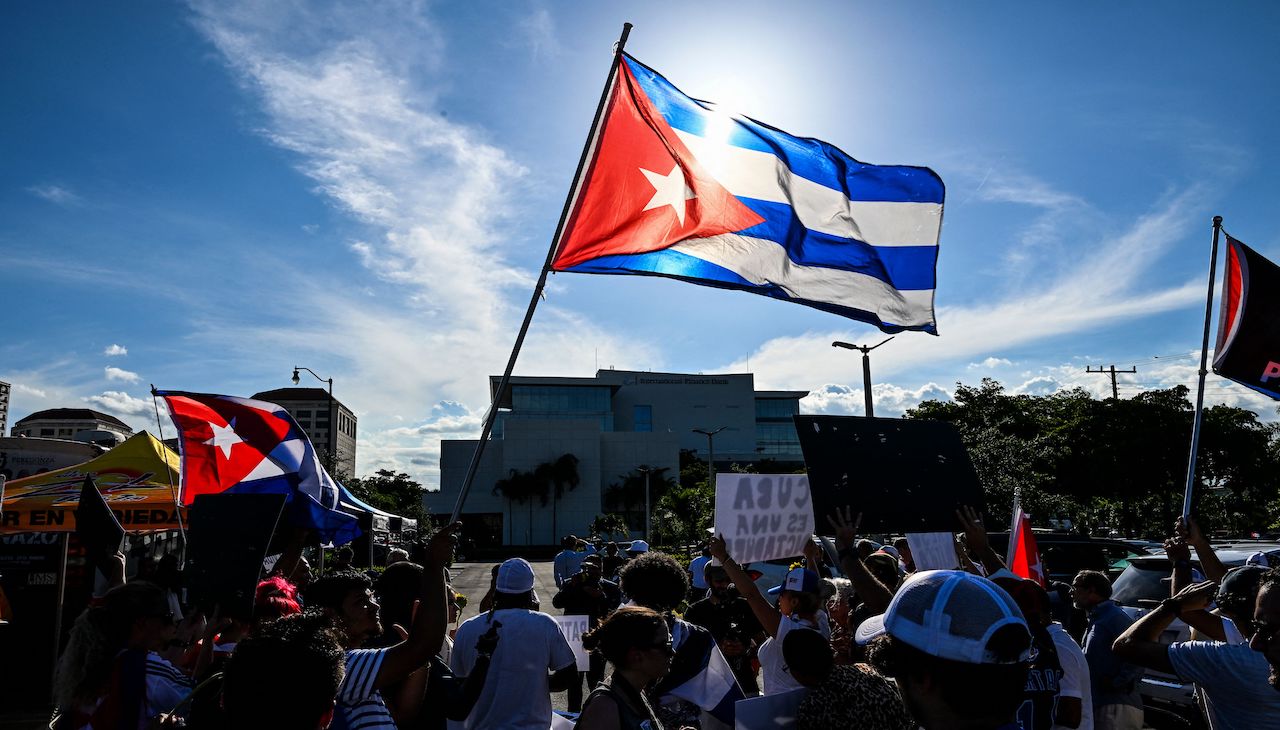
Cuban migration breaks 40-year record in year after massive government protests
July 11, 2022 marked the one year anniversary of the largest anti-government protests since Fidel Castro’s Communist Revolution of 1959.
On July 11, 2021, thousands of Cubans took to the streets to protest and openly criticize the government's mismanagement of the country that had been ravished by the pandemic. With lack of food, medicine, electricity, and hope, Cubans fought back to speak out against the officials and demand greater civil liberties. What followed was a massive crackdown by the government that involved the arrest and prosecution of hundreds and the detention of 1,000 peaceful protesters.
According to the U.S. Customs and Border Protection, more than 140,000 Cubans have left the island from last October to this recent May. That’s more than the last mass exodus from the island, which took place during the 1980 Mariel boatlift amid another economic downturn. During that mass migration, some 125,000 Cubans came to the U.S.
Cuba’s ultimate worry has always been the rise and revolt of the people against the communist government that has had its chokehold on the nation for more than half a century. In fear of losing its grip on its people, like a bully, the government fought back unfairly, going as far as to blame the United States for orchestrating the demonstrations.
The Cuban people did not flip cars or plunder any government run stores. Despite this, hundreds were arrested, prosecuted, and jailed with sentences as long as 25 years, on charges including sedition, sabotage, robbery with force and public disorder. According to Cuban Government officials, about 488 citizens were sanctioned, 383 were sentenced to prison, 105 were sanctioned without prison, and two people were released without being charged.
Justicia11J, a human rights group, denies the government's figures and raises them, claiming the number of detainees is much higher than what was reported. They claim 701 Cubans remain detained, with 622 being given a 25-year sentence.
An entire population is fatigued by the uncertainty that seems to always face the lonely island. Inflation, and lack of any kind of resource has the country in an interesting place as more people than ever before are leaving in droves.
In recent years, Cuba has seen some of its hardest times amid the pandemic, which forced the closure of its border for eight months, crippling its economy. Tourism, one of the country’s biggest sources of revenue, was cut by more than 70% according to Pavel Vidal, a former Cuban central bank economist, who teaches at Javeriana University in Colombia.
RELATED CONTENT
Along with the consequences of the pandemic, one of Cuba’s few allies, Venezuela, ensnared itself in further political and economic unrest and was forced to cut the aid it always supplied to Cuba.
Another major source of revenue that took a blow was its medical exchange program that allowed Cuban medical personnel to go overseas to Latin America, Africa, and Oceania to bring students and patients to study and get treatment. However, a number of countries have since ended their agreements with Cuba.
Former U.S. President Donald Trump also did not help matters, imposing restrictions on the country’s import of oil and reducing the number of flights and U.S. ships that could dock there, effectively cutting ties with Cuba.
For a country that imports more than 70% of its food from other countries according to the World Food Programme, the government has had a tough time feeding its people and providing medicine, as many children and elderly died during the pandemic due to shortages.
In the year since the initial protests, the Cuban government has made efforts to address the peoples’ issues but ultimately, many feel another huge protest like the one in 2021 is on the horizon, as not much has changed to better anyone's situation.
Hundreds are wrongly jailed, many are starving, and do not have electricity.











LEAVE A COMMENT: